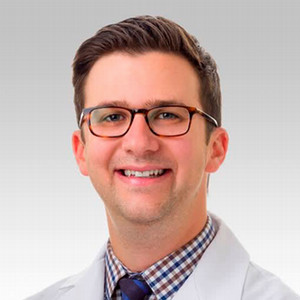
June 2024 Newsletter

June 2024 Newsletter

Student Profile
Annmarie Dominguez is a PhD student in the Driskill Graduate Program. After studying chemistry at the University of California, Santa Cruz, Dominguez joined the laboratory of Luisa Iruela-Arispe, PhD, the chair and Stephen Walter Ranson Professor of Cell and Developmental Biology. In the lab, Dominguez investigates endothelial cell mechanobiology.
Where is your hometown?
I was born and raised in South Los Angeles, California.
What sparked your interest in science or medicine?
My dad is an auto mechanic, and I grew up learning a lot about cars, how they operate, how to “diagnose” them and how to fix them. This sparked my original interest in engineering, actually. For the longest time, I wanted to be an engineer and even joined my high school robotics team. It wasn’t until later, as a community college student, that I took my first class in organic chemistry. I absolutely loved it. I challenged myself to apply for graduate programs in biomedical/biological sciences because, through working in the biotechnology industry, I learned that while being a chemist gave me an important blueprint for understanding the underlying principles of life, I was still missing a huge part in understanding overall human health and how to improve it. That gave me the impetus to pursue a doctoral degree in cell biology.
What are your research interests?
Cardiovascular disease and cancer are the leading causes of death in the United States. It is known that health outcomes for low-income and ethnic minorities are significantly worse in both disease areas. I am broadly interested in leveraging my educational background, research/technical experience and representation to help create new, personalized therapeutic modalities in these disease areas that directly benefit underserved and understudied patient populations.
What are you currently working on?
My research is focused on understanding one very important facet of cardiovascular health–endothelial cell mechanobiology. Endothelial cells comprise the innermost layer of all blood vessels and are “first-in-line” responders to biochemical, mechanical and/or biophysical cues in their native environment. One important cellular response to biophysical forces caused by fluid blood flow is endothelial cell polarity. However, the mechanisms that confer this type of cellular response are not largely understood. My research project is focused on defining flow-based molecular cues in the vascular endothelium and understanding how this response is mitigated when there is damage (wounding) to blood vessels. This research can help create more compatible biomaterials that restore prior damage to blood vessels or identify new molecular targets for regenerative and/or preventative cardiovascular medicine.
Please tell us about a defining moment in your education at Feinberg thus far.
I had the amazing opportunity to meet the 2022 Nobel Prize winner in Chemistry, Dr. Carolyn Bertozzi over breakfast and as part of the Driskill Graduate Program’s Distinguished Lectures in Life Sciences Series. Not only is Dr. Bertozzi a superstar, pioneer and leader in the field of science, but she is also an extremely humble, kind and socially conscious human being. I was later blown away at her lecture as well as her unique ability to clearly and concisely distill complicated scientific concepts and research applications to a general audience. Dr. Bertozzi’s lecture is the best I’ve seen/heard here at Northwestern.
What do you hope to do with your degree?
I am hoping to find a job in industry, at a pharmaceutical or biotechnology company that prioritizes creating life-changing therapeutics for patients with high, unmet medical need.